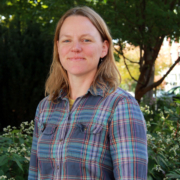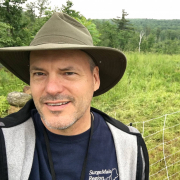For more than 35 years, the National Center for Appropriate Technology’s ATTRA Sustainable Agriculture program has been helping farmers and ranchers grow nutritious food and operate successful businesses without synthetic fertilizer. Now, NCAT has released a new toolkit with trusted and practical resources for farmers who want to transition away from the use of synthetic fertilizers.
“As the cost of synthetic fertilizers and global food prices continue to climb, NCAT is releasing a roadmap for farmers who are looking for a more self-reliant and resilient method of farming,” said NCAT Southeast Regional Director and Arkansas farmer Margo Hale. “A growing number of farmers are opting out of the high-input model of conventional agriculture, which we see now is so vulnerable to global events like war and supply chain disruption.”
As the world’s farmers watch the cost of synthetic fertilizer continue to increase, and global food prices shatter records kept by the U.N. Food and Agriculture Organization, the global food system is being stressed like never before. There is a more stable, resilient model being used in every corner of the United States. These farmers rely on biological sources of nitrogen, breaking free of an often-volatile global marketplace.
Farming without synthetic fertilizers is within reach for large-scale food producers, and it’s a requirement for certified organic farmers. Montana grain-grower Bob Quinn transitioned his family’s conventional farm to an organic one back in 1989. Quinn brought Khorasan wheat to the mainstream marketplace with his brand KAMUT. In Maryland, Ron Holter manages his 150-cow seasonal dairy on grass alone, with no supplementary grain. Holter’s dairy has been free of synthetic fertilizer since 1995. Dave Brandt began cover cropping his Ohio corn and soybeans in 1978. Cover crops have maintained his cash-crop yields while reducing nitrogen fertilizer use by nearly 90 percent. Brandt credits cover crops with increasing soil microbial activity naturally, which provides nutrients to the food he grows and increases the soil’s water-holding capacity.
Data show consumer demand for certified organic and other regeneratively produced foods continues to increase. The sale of organic products in the U.S. has grown more than 30 percent since 2016, and the number of organic producers is up almost 40 percent. Farmers who use regenerative methods, but might not be certified organic, are no doubt on the rise, too.
Shifting to a production method that is not reliant on synthetic fertilizers can be accomplished strategically over a three- to five-year transitional period. NCAT’s new toolkit guides farmers as they learn to use cover crops, managed grazing, and alternative soil amendments to naturally boost renewable nitrogen levels needed to maintain long-term productivity. These are accessible tools that can result in reduced input costs, increased self-reliance, and more nutritious food grown at small and large scales.
Access the free toolkit and decades of trusted, practical resources here: https://attra.ncat.org/how-to-reduce-synthetic-fertilizer-use/ .
EXPERT VOICES
NINA PRATER
Expertise Areas: Livestock, Soil Health, Organic Crops
 Nina Prater has been with the National Center for Appropriate Technology (NCAT) since 2016 as a Soil Specialist and Outreach Coordinator in the Southeast Regional Office. She strives to help farmers understand soils as a living entity so that they are able to farm profitably and build healthy soils for long-term success. Nina also works closely with the Gulf States Regional Office staff to coordinate outreach efforts in that region. Nina served as an Energy Corps member in 2013 and worked for her local conservation district for 2.5 years before joining NCAT. Nina and her husband Jeremy own and operate a small sustainable livestock operation in the Ozarks hills of Arkansas, where they raise meat goats, cattle, hogs, and poultry. They utilize adaptive grazing methods to build soil health in their pastures.
Nina Prater has been with the National Center for Appropriate Technology (NCAT) since 2016 as a Soil Specialist and Outreach Coordinator in the Southeast Regional Office. She strives to help farmers understand soils as a living entity so that they are able to farm profitably and build healthy soils for long-term success. Nina also works closely with the Gulf States Regional Office staff to coordinate outreach efforts in that region. Nina served as an Energy Corps member in 2013 and worked for her local conservation district for 2.5 years before joining NCAT. Nina and her husband Jeremy own and operate a small sustainable livestock operation in the Ozarks hills of Arkansas, where they raise meat goats, cattle, hogs, and poultry. They utilize adaptive grazing methods to build soil health in their pastures.
LEE RINEHART
Expertise Areas: Livestock, Organic Livestock, Soil Health, Grazing, Pasture Ecology
 Lee Rinehart is a graduate of Texas A&M University, where he studied animal science and agricultural education. He currently works as an agriculture specialist in the National Center for Appropriate Technology’s Northeast Regional Office, where he focuses on pasture and rangeland ecology and grazing systems. He has served as county Extension agent in Texas and Montana, organic farm educator in Pennsylvania, and cattle ranch manager in central Texas. His specialty is developing grazing plans and assisting producers in using animals to renovate pastureland. Lee is a Chief Petty Officer in the Navy Reserve and spends his free time biking, sailing, and renovating his 1925 Cape Cod house in Northeast Pennsylvania.
Lee Rinehart is a graduate of Texas A&M University, where he studied animal science and agricultural education. He currently works as an agriculture specialist in the National Center for Appropriate Technology’s Northeast Regional Office, where he focuses on pasture and rangeland ecology and grazing systems. He has served as county Extension agent in Texas and Montana, organic farm educator in Pennsylvania, and cattle ranch manager in central Texas. His specialty is developing grazing plans and assisting producers in using animals to renovate pastureland. Lee is a Chief Petty Officer in the Navy Reserve and spends his free time biking, sailing, and renovating his 1925 Cape Cod house in Northeast Pennsylvania.
